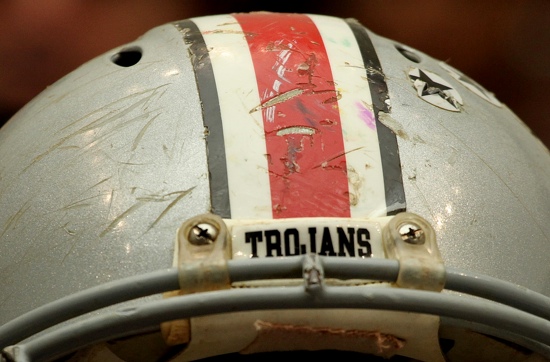Senate, House debating student concussion policy
Student-athletes in youth-sports programs could be included under new concussion policies if a bill seeking to add guidelines for non-interscholastic teams passes.

By Chris Suarez | Capital News Service
Student-athletes in youth-sports programs could be included under new concussion policies if a bill seeking to add guidelines for non-interscholastic teams passes.
House Bill 441 patron Delegate Richard Anderson, R-Woodbridge, said the bill was introduced in memory of Austin Trenum, a student from Brenstville High School in Prince William County. In September 2010, Austin — the son of Prince William County School Board member, Gil Trenum — took his own life after experiencing a concussion during a high school football game late that summer.
Paul McShane, a senior at Centreville High School, who suffered a concussion in the summer of 2011, has yet to be medically cleared for any contact sport.
McShane says suffering a concussion is a unique injury because typical remedies do not work. While many players combat injury by taking rehabilitative services or medicine, McShane says there is no concrete treatment for concussions.
“Not knowing is the worst part. I don’t know when the day will be that I don’t wake up with a headache,” McShane said. “I don’t know what it’s not like to have one.”
Virginia public-schools instituted new policies for managing student-athlete concussions in the wake of Austin’s death, but youth sports organizations, which use public-school property, are not legally held to the same standard, Anderson said.
“There’s a well-defined body of guidance for scholastic teams, but there is no requirement right now for non-interscholastic teams to comply with any sort of concussion protocol.” Anderson said.
While the procedure will require extra work for non-interscholastic youth sports programs, Anderson said he thinks the policy should be an easy transition if the groups work in conjunction with the schools.
“If they’re going to practice or play on school property, they’ll have to either develop their own concussion protocols in accordance with school policies or adopt an existing policy that’s been authored and blessed by the state Board of Education,” Anderson said.
The bill was rejected by the House of Delegates this past week after coming back from the Senate. Amendments made by the Senate struck down a clause in the bill encouraging the tracking of students’ academic performance after suffering a concussion.
A Senate companion bill without the academic-effects clause currently is making its way through the House, but Anderson says any related bill that passes the House will include the provision.
“When we go to conference committee, we’ll make the agreed upon version between the House and Senate include the statement about the effects of concussions on student-athletes academically,” Anderson said.
McShane, who had to drop out and become home schooled after his injury, says the provision to educate coaches, students and their families about the adverse effects on academic performance would be welcomed.
“I think the coaches of whatever sport and training staff are fully responsible and should be held accountable,” McShane said. “A child’s future and development as a person is rooted in their programs…and they’re responsible for that.”
Photo by: House Committee on Education and the Workforce Dem
-
Recommend this
on Facebook -

Report an error
-

Subscribe to our
Weekly Digest





Notice: Comments that are not conducive to an interesting and thoughtful conversation may be removed at the editor’s discretion.